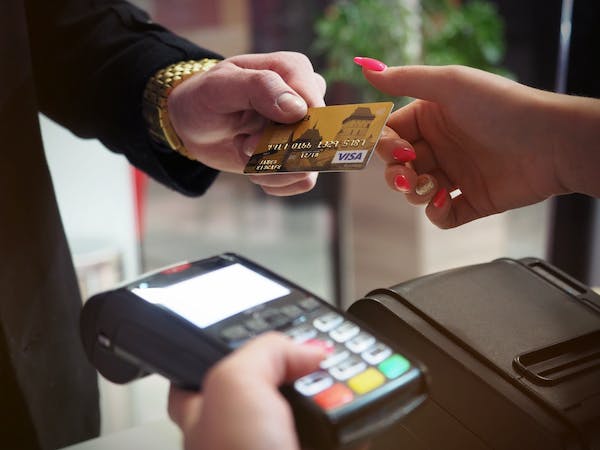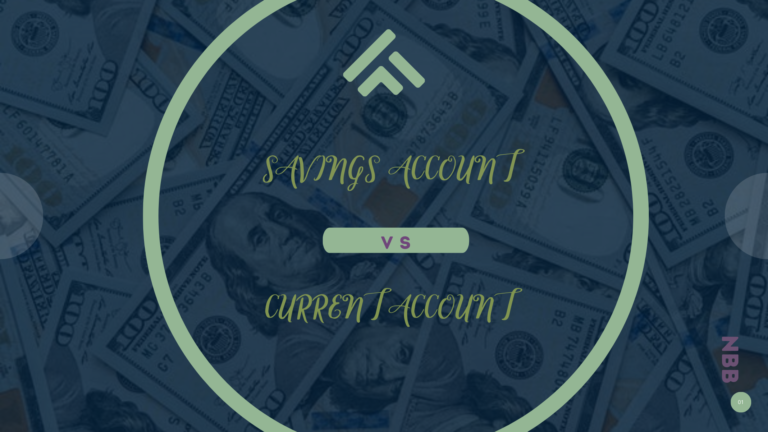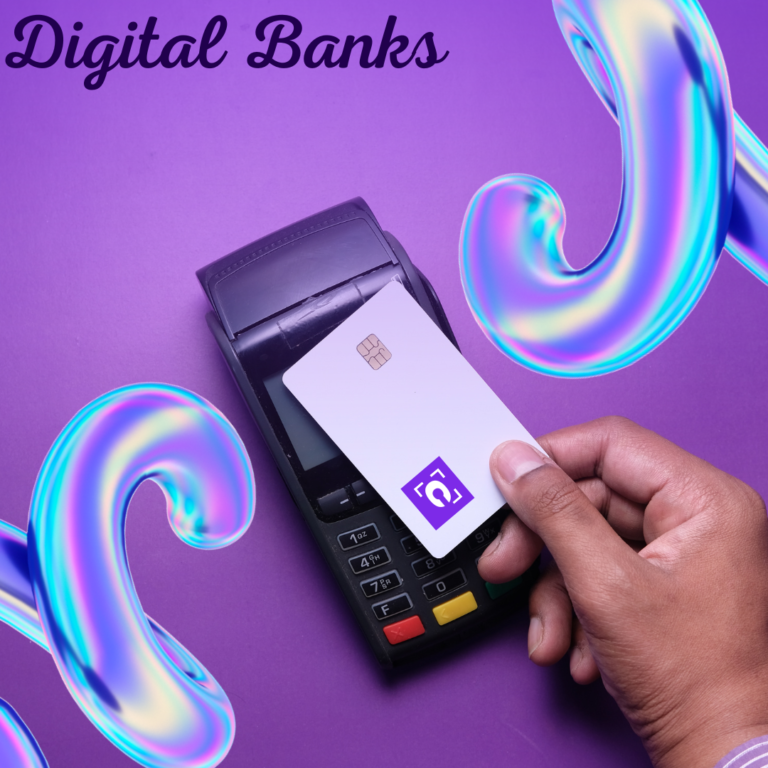Types of bank accounts in Nigeria
A bank account is a type of financial account that a financial institution provides to its customers so that they can keep money, make monetary transactions, and gain access to various credit facilities offered by the bank.
Financial institutions like banks offer various accounts to their clients, each with its own set of rules and regulations that must be followed in order to comply with the bank’s regulatory framework and, by extension, the country’s central bank regulations.

Since a bank account serves as a representation of a person’s identity in the banking system, it is required for any transaction involving a bank or a bank branch.
Growing urbanization and efforts by regulators to expand banking services to underserved populations have led to an increase in the number of individuals opening bank accounts.
Commercial banks have come up with creative ways to advertise to attract new customers so they can get a bigger share of the banking industry’s customers.
As a result of the transition from paper-based to digital banking, the number of bank accounts in all over the world has risen dramatically.
So, we have decided to enlighten people who don’t know much about the banking sector about the different types of accounts they can open.
If you read this blog post to the end, you will get to know not just the types of bank accounts but with their advantages and disadvantage.
Now, here are the types of bank accounts in Nigeria
You know, in modern-day Nigeria, seven unique types of bank accounts are available.
Savings account
Savings account is a very popular type of bank account in Nigeria.
If you ever want to open a bank account in Nigeria, you’ll probably want to open a savings account.
An individual can open this savings account with a minimum opening deposit to save for a future goal, project or future investments.
Most banks in Nigeria will allow you to open a savings account with zero naira, regardless of whether you are opening the account as an individual or a business.
However, you may need at least 1,000 naira to open an account at some banks. There are a number of bank-offered savings account products, all of which are essentially identical to one another.
The minimum daily balance and opening deposit needed to open an account at a given bank can differ widely.
You can open a savings account with just about any form of government-issued identification, such as a driver’s license or a passport, and a utility bill (such as an electric or water bill, a rent receipt, or a tenancy bill).
Now that you have known much about savings accounts, let’s take a look at their advantages and disadvantages
Advantages of savings account
- With a savings account, you have access to ATM cards, Electronic banking channels, including online banking
- You will also enjoy a low-interest rate
- The National Deposit Insurance Corporation guarantees depositors’ payments in the event that their bank fails to do so.
- One can make as many withdrawals as one like each month.
The disadvantages of a savings account
- The daily withdrawal limit is one of the disadvantages of savings accounts.
- Ineligible to use overdraft or check facilities
Current account
Businesses and organizations that deal with outside parties frequently will benefit from opening a current bank account.
Those who would prefer a more hands-on approach to financial management can also benefit from opening a current account.
One key distinction between a savings account and a current account is that the latter does not allow for withdrawals by a third party.
Current accounts are a broad category under which banks offer a wide range of products aimed at different types of customers.
In contrast to a savings account, the minimum and maximum balances for these products are typically higher.
The ability to write checks, overdraw your account at any time, and make payments on orders are additional perks of having a current account.
To open a current account, you need to be at least 18 years old, have a valid means of identification, and provide proof of your current address in the form of a utility bill.
Now, here are some of the advantages and disadvantages of opening a current account.
Advantages of current account
- Customers with a current account are eligible for loans and other banking services.
- Small and Medium Enterprise (SME) current accounts are available at some banks.
Disadvantages of current account
- There are fees associated with keeping your online banking services
- Limited cash withdrawals on a daily basis.
Corporate account
A corporate account is a special type of bank account in Nigeria used especially by organizations to receive and save money earned from its operations.
With a corporate account, your business can quickly and easily send funds to anyone, anywhere in the world, not just within Nigeria.
To open a corporate bank account, you need tax identification numbers (TINs), references, CAC documents, valid means of identification, a board resolution passport, bank verification numbers (BVNs), proof of address, and the right licenses.
Advantages of corporate account
- Ease of getting a loan with a business account
- boosts trust when dealing with other companies
- Enhanced potential for financial gain
- Having a current account facilitates domestic and international financial transactions in Nigeria
Disadvantage of current account
- There will be double taxation on incoming funds.
Fixed deposit account
An investment bank account, often known as a “fixed deposit account,” is another type of bank account in Nigeria.
With a fixed deposit account, you rest assured that your money will grow rapidly within a specified time frame, typically between 30 and 180 days. If you need help, feel free to read how to make money by investing in Nigerian fixed deposit.
You know, with a fixed deposit account, the depositor will earn interest at a rate that has been agreed upon in advance of the deposit.
At the end of the investment period, the holder can either renew the investment for another time under the same circumstances or cash out the capital.
If the holder decides to terminate the contract before the end of the term, however, he or she will not be paid any accrued interest.
And while withholding tax (WHT) may be levied upon withdrawal, the interest rates on fixed deposit accounts are higher than those of savings accounts.
The basic requirement for obtaining a fixed deposit account is a current account, with the minimum deposit required to open the account varying by financial institution.
In addition to having a current bank account, you must also submit a passport photo and a current utility bill.
Advantages of fixed deposit account
- A fixed deposit account gives you the chance to earn interest on a regular basis.
- High Rates of interest
- With a fixed deposit account, the return on savings is guaranteed
Disadvantages of fixed deposit account
- Average tax rates apply to fixed deposits.
- Fixed deposit account yields low return
- A fixed deposit account is not suitable for everybody
Joint account
The fifth on our list of the type of bank account in Nigeria is a joint account.
When more than one person opens a bank account together, such an account is known as a joint account.
A joint account is similar to a savings account except that there is more than one person with access to the funds.
Members of the same household or circle of business associates who are united by ties of trust and cooperation can open a joint bank account. All account holders have full access to the account at all times.
The use of the conjunctions “and” and “or” between the partners’ names in a joint account is crucial for understanding how the account is used.
To withdraw funds from a joint account that the names of the account holders are separated with “and”, the signatures from both account holders are required.
Additionally, when the account holders’ names are separated by an “or,” one account holder can access the funds without the consent of the other.
Advantages of a joint account
- Joint account helps in tracking onces expences.
- Joint account helps organize one’s finances for the future
Disadvantages of a joint account
- There will be a right of survivorship applied to the account in the case of a death.
- Financial mismanagement on the side of one of the parties.
Domiciliary account
If you wish to perform financial transactions in a currency other than the Nigerian naira, a domiciliary account will allow you to do that.
With a domiciliary account, you’ll have a lot more flexibility when it comes to paying for school fees abroad or receiving money from home.
Anyone receiving payments in a currency other than their own, such as Adsense partners, patrons of online stores, or content authors, needs a domiciliary account.
To open a domiciliary account, you’ll need to provide identification (passport photos, utility bills, etc.) and a minimum opening deposit (which can range from a few hundred dollars to several thousand dollars, depending on the bank and the foreign currency you choose).
Advantages of Domiciliary Account
Domiciliary Account helps manage the wildly fluctuating naira.
Domiciliary account makes importation of goods quick and easy
Disadvantages of domiciliary account
- Withdrawals incur significant charges
- Inability to access your naira funds either through withdrawals or direct deposits
- The account can’t be created without referees and guarantors.
Non-resident Nigerian account
Another type of bank account we will be addressing is Non-Resident Nigerian Account.
This type of bank account is a mainly fthat or ex-pat Nigerians who still desire to maintain a financial presence in their home country.
A non- residential Nigerian account can be opened by anyone, regardless of where they actually live.
Requirement needed include a resume, cover letter, references, and identification documents.
Advantages of Non-residential Nigerian account
- Higher returns for those who invest in the long.
- Great investment opportunities.
Disadvantage of Non-resident Nigerian account
- Depending on the current naira exchange rate, having a Nigerian bank account as a Nigerian who stays abroad could be a great loss.
Conclusion
If you live in Nigeria, opening a bank account is a must for hassle-free access to your money.
But for the best outcome, you’ll will have to open an account that fits your specific needs.





